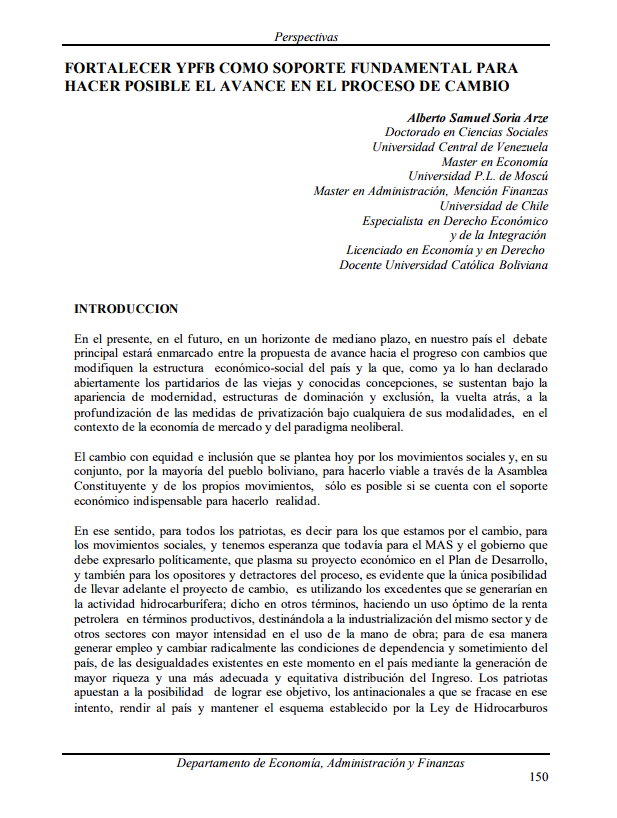Strengthening YPFB as a fundamental support to enable progress in the process of change.
DOI:
https://doi.org/10.35319/hqvnk771Keywords:
Structural change, Equity, Oil revenue, Industrialization, Social inclusionAbstract
In Bolivia, the medium- and long-term debate centers around two opposing visions: one advocating progress through structural change with equity and social inclusion, and another promoting a return to neoliberal models based on privatization and exclusion, masked as modernity. The feasibility of the transformation project supported by social movements—and at one time by the MAS and the government—relies on the strategic use of surplus revenues from the hydrocarbons sector. This implies productively investing oil income in the industrialization of gas and other labor-intensive sectors, aiming to overcome historical dependency, reduce inequalities, and ensure fairer wealth distribution. Success in this endeavor is seen as a patriotic commitment, while its failure would favor a neoliberal framework like that of the previous Hydrocarbons Law No. 1689, which prioritized transnational corporate interests.
Downloads
References
UDAPE. Informe del primer semestre 2007. La Paz.

Downloads
Published
Issue
Section
License
Copyright (c) 2007 Revista Perspectivas

This work is licensed under a Creative Commons Attribution-NonCommercial-ShareAlike 4.0 International License.
La Revista Perspectivas de la Universidad Católica Boliviana, es una revista de acceso abierto, por lo tanto, es de libre acceso en su integridad. Está permitida su lectura, búsqueda, descarga, distribución y reutilización legal en cualquier tipo de soporte únicamente para fines no comerciales, siempre y cuando la obra sea debidamente citada.




